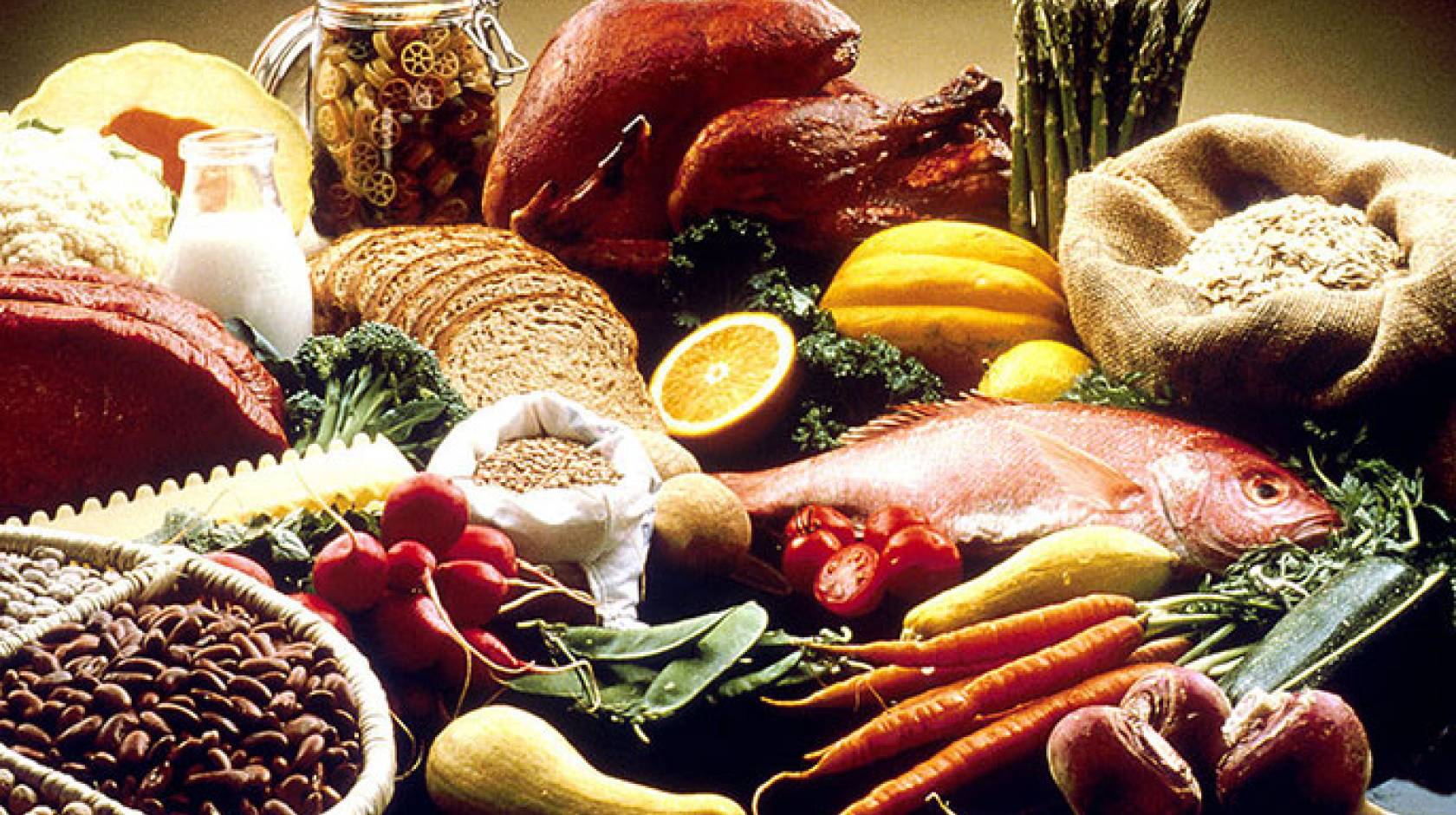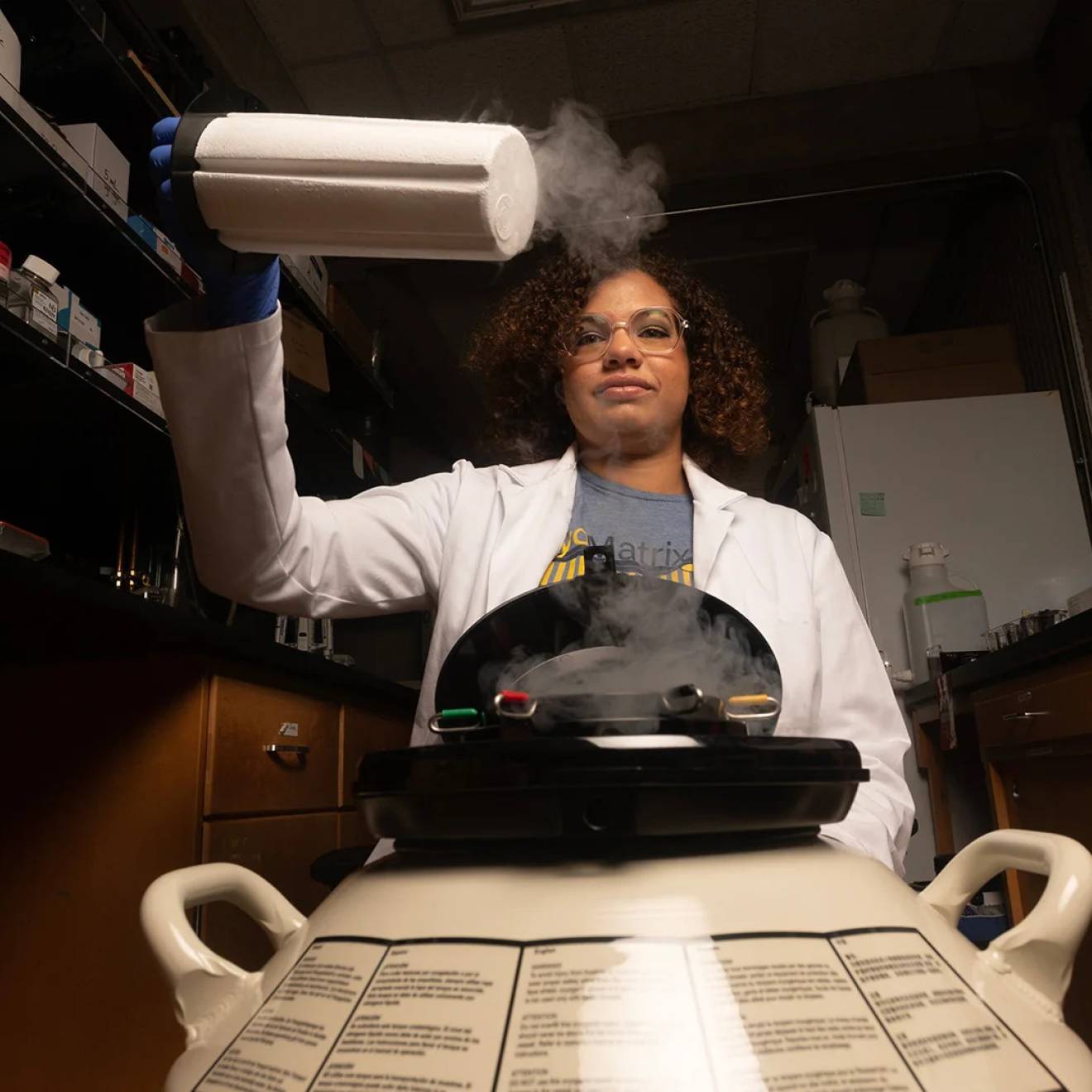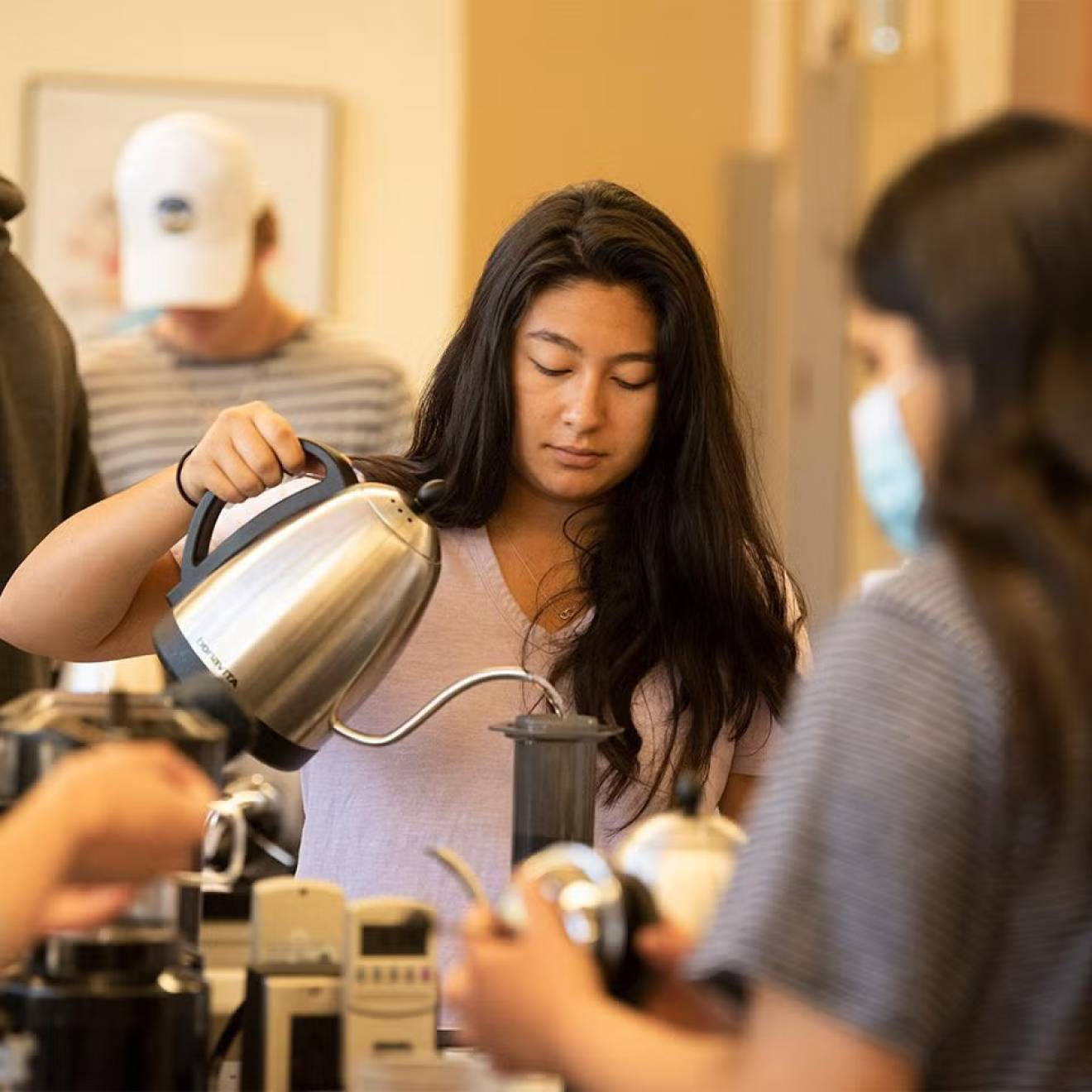Iqbal Pittalwala, UC Riverside

Since 2009, Dining Services at UC Riverside has made significant progress towards the UC Office of the President’s 2020 Food Sustainability Goals.
These goals include nine areas of sustainable practices such as waste reduction and recycling, environmentally preferable purchasing, sustainable foodservice, green buildings, sustainable water systems, clean energy, transportation, climate protection and sustainable operations. Each UC campus has committed to 20 percent sustainable food purchases by 2020.
Key staff in Dining Services – Cheryl Garner, executive director of Dining Services, and Neal Malik, registered dietitian – will now share in a free public lecture some of the new social, educational and operational programs they have implemented to date to reach these goals and some aggressive new focus areas for the future.
Titled “Seeds of Change: UCR’s Healthy and Sustainable Food Initiative,” the hourlong lecture will be given at 5:30 p.m., Thursday, May 7, in Rooms D and E, UC Riverside Extension Center, 1200 University Ave., Riverside. Seating is open. Free parking will be provided to lecture attendees.
The lecture is the third of four talks in a new lecture series on the science of food and health. It is presented by the College of Natural and Agricultural Sciences in partnership with the California Agriculture and Food Enterprise (CAFÉ) at UCR and the UC Global Food Initiative.
Garner explained that one of the dining department’s new initiatives is “Seeds of Change,” which focuses on providing healthy, sustainable, socially responsible and delicious menus to the campus and community. The program embraces the vision of the Culinary Institute of America and Harvard School of Public Health to leverage the unique position of universities to advance healthier, more sustainable lifelong food choices among students – who will soon be parents and adult decision makers – by connecting a diversity of insights from academic programs and dining services.
Seeds of Change focuses on 24 core principles to help reconstruct how UCR Dining Services creates and delivers their menus. These principles include menu concepts and general operational guidelines as well as key focus areas for back-of-the-house “kitchen” operations.” The program promotes transparency within Dining Services while providing food and ingredient focus areas incorporating such principles as seasonal and local foods, placing produce first, removing unhealthy oils from recipes, and providing whole grain options to campus and residential restaurants.
“I believe that everyone on my staff is invested in this initiative, which is why this program is such a great fit for our campus,” Garner said. “From our chefs to our managers to our student workers, all will incorporate Seeds of Change into their daily operations in some form or another. It is the hope that Seeds of Change will revolutionize the way people think about food. Dining Services understands that the way we currently produce, consume and transport food is simply not sustainable.”
Garner is the chair of the UCR Sustainability Committee on Food, a co-chair for the UC Global Food Committee, and the national education chair for the National Association of College & University Food Services. Most recently she joined the executive committee for the Menus of Change University Research Collaborative, an organization whose vision is to create a dynamic, invitational network of leading university scholars, business leaders and executive chefs to collaborate on research and education in support of culinary centric, evidence-based food systems innovation within and beyond universities. Garner has spent more than 20 years in college and university foodservice at UCLA, the University of San Diego, Texas A&M, and UCR.
“It is my hope that our talk will help enlighten others as to some of the key ways that the department has reached out to educate and include the general campus population, as well as the Riverside community, in their endeavor to embrace sustainable, socially and ethically responsible, nutritious and healthy, but above all, delicious and appealing dining,” Malik said.
Malik’s passion for health and wellness began as an undergraduate student at UC Irvine. He later obtained both his master’s and doctoral degrees in public health from Loma Linda University, with an emphasis in chronic disease prevention and nutrition. He also is a certified health fitness specialist (American College of Sports Medicine). His research experience includes weight management and type 2 diabetes. He has worked as a lifestyle educator for Kaiser Permanente and has been a college instructor for the past eight years.
The final talk in “The Science of Food and Health” series is “What You Eat Is How You Feel: Nutrition and Its Impact on Immunity and Health” on May 21.
CAFÉ builds on UCR’s history and strengths in interdisciplinary research, facilities and outreach to positively impact the science, policies and practices related to the role of food and agriculture to human health and well-being.
Through its Global Food Initiative, UC is harnessing the strength and breadth of its research to address how a world population expected to reach eight billion by 2025 can be sustainably and nutritiously fed.

